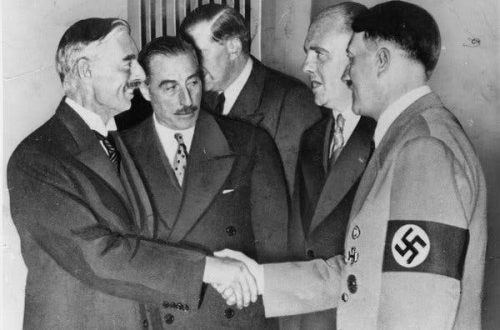Anne Applebaum is a Pulitzer Prize winning author of Gulag: A History, a remarkable documented account of the history of the Soviet prison system, concentration camps for forced labour started under Lenin’s watch where millions of Soviet citizens were sent and countless died. In 1996 she wrote a review for the Spectator of Dimitry Volkogonov’s biography of Trotsky, Trotsky: The Eternal Revolutionary. I copy below an extract from that review:
Who follows in his train?
Trotsky: The Eternal Revolutionary by Dimitry Volkogonov (Book Review)
Anne Applebaum
Spectator, April 13, 1996, pp.33-34.
Volkogonov… points out many times… that Trotsky approved of his own fledgling personality cult (indeed encouraged it…). He notes that the Stalinist methods which Trotsky is sometimes thought to have condemned were often those he himself had advocated: Trotsky’s murderer, the ice-pick-wielding Stalinist agent Ramon Mercdor, defended himself by announcing that ‘terrorism is necessary in the struggle for Communism’, a virtual quotation from Trotsky’s own book, Terrorism and Communism. Trotsky approved the use and manufacture of poison gas; he planned the murder of Nestor Makhno, the Ukranian Anarchist leader, even while Makhno was technically an ally. For all his rhetorical brilliance, he was never able to inspire or to organise a powerful anti-Stalinist opposition: certainly he was no advocate of freedom or ‘bourgeois’ democracy of the Western kind.
Volkogonov does not spend much time analysing the philosophy of Trotskyism as such but he clearly does not feel that he needs to: by the end of the book, it is hard to see how the three greatest Bolsheviks [Lenin, Stalin and Trotsky] really differed, philosophically, at all. Despite the fame he obtained in exile, and despite the vilification which Stalin heaped upon him, and despite the once powerful cult of Trotsky as a ‘legitimate’ communist alternative to Stalinism, Trotsky’s economics are primitive, his concept of ‘permanent revolution’ vague, his belief in the ‘world revolution’ utopian to the point of stupidity. Like Lenin, Trotsky firmly believed in the dictatorship of one party and its monopoly on ideas. Like Stalin, he argued in favour of forced industrialisation and the liquidation of the kulaks, the wealthy peasants (his own parents among them). In fact, Trotsky’s may have spurred Stalin on to carry out this programme:
While responsibility for the tremendous sufferings imposed on the Soviet people belongs squarely with the Communist Party under Stalin and his circle, the ideological origins of the policy of coercion and the forcing of social change should be laid at the door of Trotsky’s Left opposition.
There is an obvious sensible recommendation that one can make from reading this: Smash the SWP!


